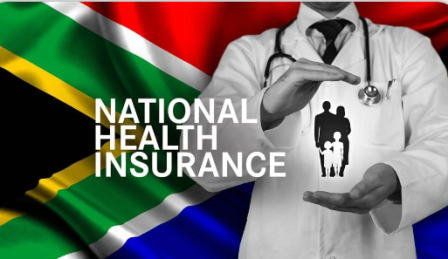
Massive tax increases to fund NHI – destroying South Africa’s economy
By: Shaun Jacobs – Daily Investor
Funding the government’s National Health Insurance (NHI) scheme would require a 31% increase in personal income tax, or a 6.5% increase in VAT, or a ten times increase in payroll tax, threatening South Africa’s entire economy.
President Cyril Ramaphosa signed the NHI Bill into law on Wednesday, 15 May, ahead of the country’s national elections at the end of the month in which his party is desperate to hold onto its majority.
The scheme aims to achieve universal coverage for health services and, through this, overcome critical socio-economic imbalances and inequities of the past.
The legislation provides a framework for the provision of universal care through a state-run fund and will ban the private sector from financing treatment covered under the plan.
While the government has promised that the signing of the NHI into law will result in universal healthcare free at the point of delivery, this ambition is far from reality.
Apart from challenges relating to whether it will pass Constitutional muster, business leaders and experts are concerned that the scheme has no clear funding mechanism.
The Department of Health has confirmed that tax increases and other tax changes are on the cards to fund the NHI. However, it has not been clear on which taxes will be raised or if a new tax will be introduced.
NHI Deputy Director General Nicholas Crisp said the only way to move medical aid money into the NHI fund is through taxes.
“Whether that is through VAT or other taxes is a matter for the National Treasury and the Money Bill, which will come later,” he said.
Deputy Director General of Health Dr Nicholas Crisp
South Africa’s largest medical aid provider, Discovery, revealed during its interim results presentation earlier this year just how much the government would have to raise taxes to fund the NHI.
It urged the government to work with the private sector to make universal healthcare work in South Africa.
The company laid out the tax increases that would be needed to fund the NHI, which would require around R200 billion in additional funding each year, according to the Department of Health –
A 31% increase in personal income tax or
A 6.5% increase in VAT or
A ten times increase in payroll tax
This is unsustainable for a country with an extremely small tax base, which is already being squeezed to raise revenue for the government.
Calculations done by FTI Consulting show that every South African worker will have to pay an additional R18,780 in tax per year to fund the NHI.
FTI clarified that the additional tax amount indicated by the government is not the total cost of the NHI, as it will probably need much more to implement fully.
“If you were to do that, I would argue that you would destroy the economy,” Discovery CEO Adrian Gore said.
“It’s not a healthcare issue – it creates a real economic problem. I don’t think people would bear paying 30% more taxes and having 70% less healthcare.”
He said the NHI, in the form described in the NHI Bill, is not something the country can currently afford.
“If we get rapid economic growth and, over time, we find ways to do this in different ways with many different methodologies, then it may be workable,” he said.
Gore said the only way to achieve a workable NHI in South Africa is to keep the private sector in place.
Discovery said the government has to work with the private sector if it wants universal healthcare in South Africa, and thus, it must change Section 33 of the NHI Bill.
News Category
- International retailers
- On the move
- Awards and achievements
- Legislation
- Wine and liquor
- Africa
- Going green
- Supplier news
- Research tools
- Retailer trading results
- Supply chain
- Innovation and technology
- Economic factors
- Crime and security
- Store Openings
- Marketing and Promotions
- Social Responsibility
- Brand Press Office
Related Articles

Empowering South African households through gro...

SPAR shares practical tips to beat food inflation

South African motorists could be paying up to R...

Big VAT changes on the cards


